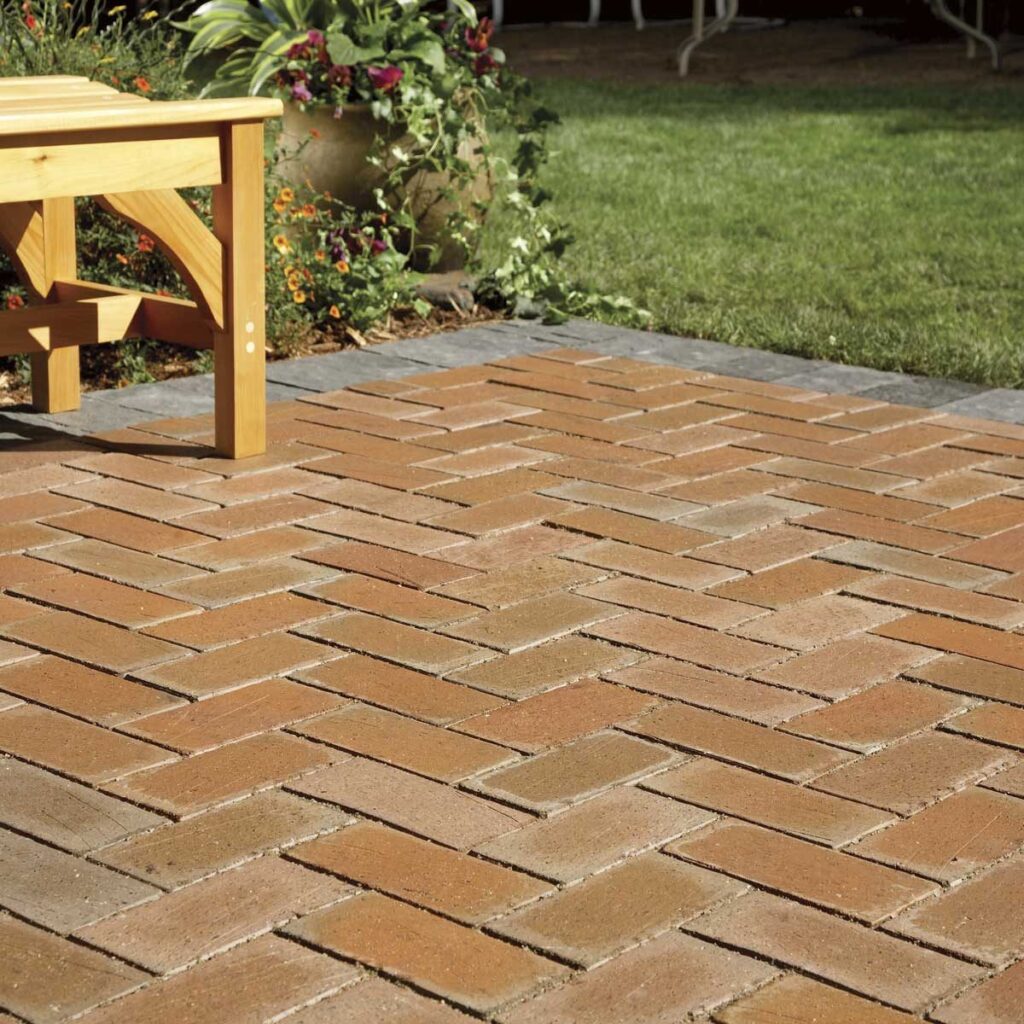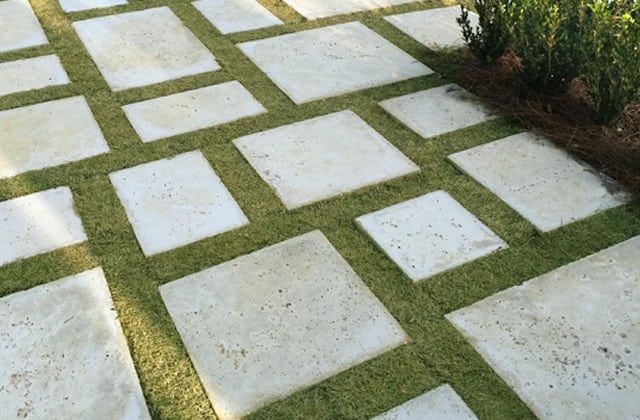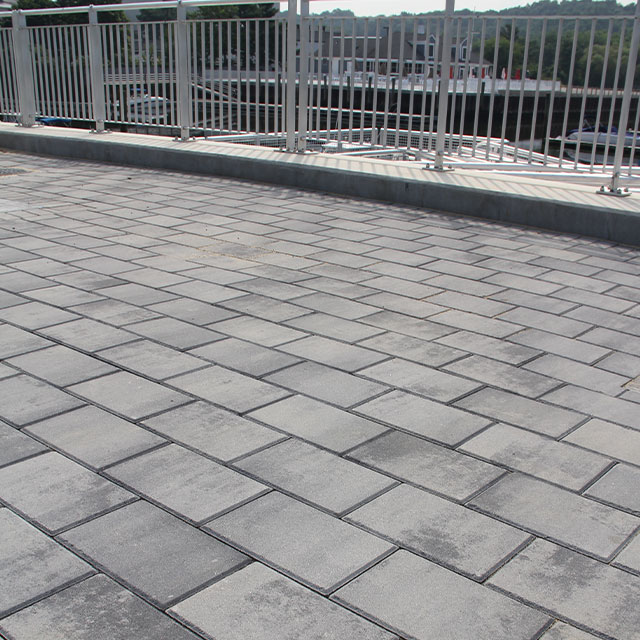Concrete pavers are popular for driveways, walkways, patios, and other outdoor surfaces. They are made of a strong, durable material that can withstand heavy traffic and harsh weather conditions.
Pavers come in various colors, shapes, and sizes so that you can create a custom look for your home.
Before you pave your patio with pavers, let’s take a balanced look at their pros and cons:
You may also like:

Pros and Benefits of Concrete Pavers
1. Built to Last
They can handle heavy foot traffic and harsh weather without flinching. Unlike poured concrete, their units allow easy replacement if one gets chipped or cracked. This translates to a fresh and inviting surface for decades, not just years.
2. Fashionable Footprint
Forget boring grey slabs! Pavers come in a dizzying array of colors, textures, and patterns. Brick-like, cobblestone, or sleek modern – you can tailor them to your home’s style and create a unique outdoor space. Bonus points for using recycled pavers for an eco-conscious touch.
3. Low Maintenance, High Life
Say goodbye to weekend-long pressure washing sessions. Pavers require minimal upkeep. A quick sweep and occasional hosing down keep them looking spiffy. Plus, their porous nature allows rainwater to drain naturally, preventing puddles and pesky mosquitoes.
4. DIY Delight (or Delegate)
Feeling handy? Installing pavers can be a satisfying weekend project. Just grab a shovel and some sand, and follow the instructions (or call a pro if power tools send shivers down your spine). The modular nature of pavers makes adjustments and repairs a breeze, unlike the unforgiving expanse of poured concrete.

Cons of Concrete Pavers
1. Expensive
Compared to poured concrete, pavers come with a heftier price tag. The cost per square foot is higher, and installation adds another layer of expense, especially if you hire a contractor. Remember, you’re paying for not just the material but also the craftsmanship and longevity that pavers offer.
2. Difficult to DIY
Installing pavers is a workout. It involves digging, leveling, and lugging around heavy blocks. If you’re not physically fit or relish the idea of a sun-soaked DIY project, consider hiring help. Remember, proper installation is key to a long-lasting and beautiful patio.
3. Unwanted Weeds
While pavers resist weeds better than poured concrete, those pesky green sprouts can still find their way through the joints. Regular weeding may be necessary, especially if sand is the filling material. Opting for polymeric sand can minimize this, but it’s not a weed-free guarantee.
4. Heavy to move
Those beautiful, sturdy pavers come with a downside – they’re heavy! Moving them around for adjustments or repairs can be a two-person (or more) job.

Are Concrete Pavers Right for You?
Concrete pavers are a great choice for homeowners who want a durable, attractive, and low-maintenance option for their outdoor surfaces. Concrete pavers can be a great addition to your home if you are willing to invest in the upfront cost and are comfortable with the installation process.
Additional Tips
- When choosing concrete pavers, select a color and style that complements your home.
- If you are unsure how to install concrete pavers, hire a professional contractor.
- Concrete pavers can be sealed to help protect them from stains and weathering.
- Regular maintenance, such as sweeping and hosing off, will help your concrete pavers last many years.
Bonus Tip: Consider using recycled concrete pavers for a more environmentally friendly option.
Concrete Paver Driveways FAQs
Q: Are concrete pavers good for driveways?
A: Yes, concrete pavers are excellent for driveways! They offer numerous advantages over poured concrete:
- Durability
- Easy repair
- Low maintenance
- Permeability
- Aesthetic appeal
Q: How long does a concrete paver driveway last?
A: With proper installation and maintenance, a concrete paver driveway can last 25 to 50 years, often exceeding the lifespan of poured concrete (20-30 years). Their modular nature allows for individual replacements, further extending their longevity.
Q: Do concrete pavers crack easily?
A: Concrete pavers are known for their durability but can crack under certain circumstances. Concrete pavers are less prone to cracking than poured concrete, but they’re not entirely crack-proof. Proper installation, maintenance, and preventive measures can significantly reduce the risk of cracks and allow you to enjoy your beautiful and durable paver surfaces for years.
Q: Is it cheaper to lay concrete or pavers? A: Poured concrete is generally cheaper per square foot than concrete pavers.
A: You can expect to pay $4 to $8 per square foot for concrete compared to $3 to $10 per square foot for pavers (depending on size and style).

John Brown
John Brown brings a wealth of experience and passion for DIY, Home and Garden, and Woodworking. With a dedication to empowering enthusiasts, he shares insights, tips, and comprehensive guides to help you transform spaces and master woodworking skills.
